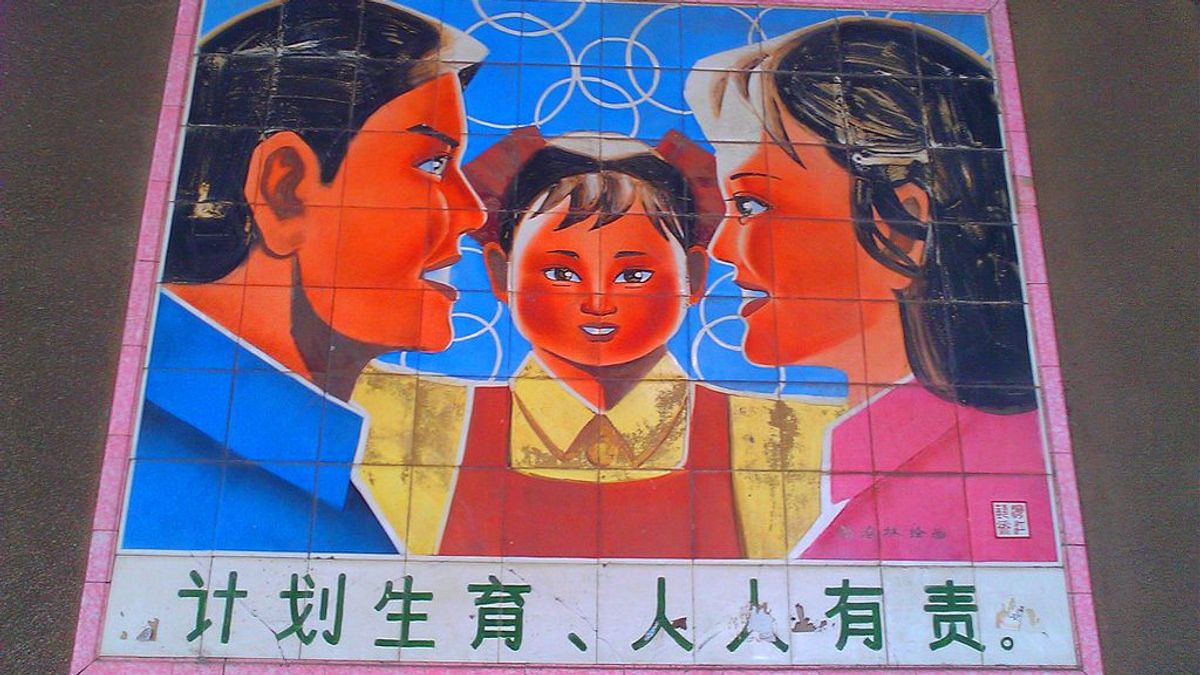JAKARTA - On October 29, 2015, China decided to revoke the one-child rule that had been in place for decades. But it's also not completely free. The Chinese Communist Party allows a married couple to have two children.
The Guardian reported that China will "fully implement the policy of allowing every couple to have two children as an active response to an aging population," the Chinese Communist Party said in a statement published by Xinhua, the official news agency. "This policy change is intended to balance population growth and address the challenges of an aging population."
Some celebrate the move as a positive step towards greater personal freedom in China. But activists and human rights critics say the easing means the Communist Party continues to control the number of Chinese families. Human rights enforcement is still not going well.
"The state has no business controlling how many children people have," said William Nee, a Hong Kong-based activist for Amnesty International. "If China is serious about respecting human rights, the government must immediately end such invasive and punitive control over people's decisions to plan families and have children."
Demographers inside and outside China have long warned of low fertility rates, which experts say are between 1.2 and 1.5 children per woman, pushing the country toward a demographic crisis. Since 2013, China's family planning laws have been gradually relaxed. Ethnic minority families and rural couples where the eldest child is a girl are allowed to have more than one child.
Before being terminated, couples who violate the one-child policy will face various penalties. Ranging from fines and job losses to forced abortions. Over time, the policy was relaxed in some provinces, as demographers and sociologists raised concerns about rising social costs and falling employment.

China began promoting contraceptive use and family planning with the founding of the People's Republic in 1949, although these efforts remained sporadic and voluntary until after Mao Zedong's death in 1976. In the late 1970s China's population was rapidly approaching the one billion mark.
The new leadership led by Deng Xiaoping began to give serious consideration to limiting rapid population growth. A voluntary program was announced in late 1978 which encouraged families to have no more than two children, one child preferably.
In 1979, demand for a one-child per family policy grew. The requirements were made stricter and applied unevenly across the country and in 1980, the central government attempted to standardize the one-child policy nationally. On September 25, 1980, a public letter—issued by the Central Committee of the Chinese Communist Party—called for all to adhere to the one-child policy. This date is often referred to as the “official” one-child policy time.
Citing the BBC, the one-child policy is estimated to have prevented around 400 million births. The human toll is enormous, with forced sterilization, infanticide and sex-selective abortion causing dramatic gender imbalances. This has resulted in millions of men in China not being able to have a female partner.
Opponents of the policy say the one-child policy is creating a demographic "ticking time bomb," with China's 1.3 billion people aging rapidly and the country's labor pool shrinking. The United Nations estimates that by 2050 China will have around 440 million people over the age of 60. While the working age population fell by 3.71 million in 2014, a trend that is expected to continue.
New problemsWhereas previously many couples had one child due to government policies, nowadays many families choose to have one child at their discretion. Rapid urbanization, economic growth, industrialization, women's emancipation and more female labor participation make many couples still decide to have only one child. The cost of raising children in cities has discouraged many couples in China from having children.
In addition, many women living in expensive cities such as Beijing and Shanghai are delaying or avoiding pregnancy. Many single women also prefer a career over a family, which further reduces the birth rate. Although those who live in rural areas tend to still follow the tradition and want a big family.
This means that although China has allowed couples to have two children, the policy has failed to increase births. Finally, China began introducing another policy in May 2021 where couples are allowed to have up to three children. The final step was approved by President Xi Jinping.
Amnesty International says the policy is tantamount to the one-child policy. It is still a violation of sexual and reproductive rights. People in China also often ask how the three-child policy can mean more births when the two-child policy fails.
"The government has no business controlling how many children people have. Rather than 'optimizing' its birth policies, China should respect people's life choices and end the invasive and punitive control of people's family planning decisions," said Amnesty International's head of China, Joshua Rosenzweig.
*Read other information about TODAY's HISTORY or read other interesting articles from Putri Ainur Islam.
TODAY'S HISTORY MoreThe English, Chinese, Japanese, Arabic, and French versions are automatically generated by the AI. So there may still be inaccuracies in translating, please always see Indonesian as our main language. (system supported by DigitalSiber.id)










